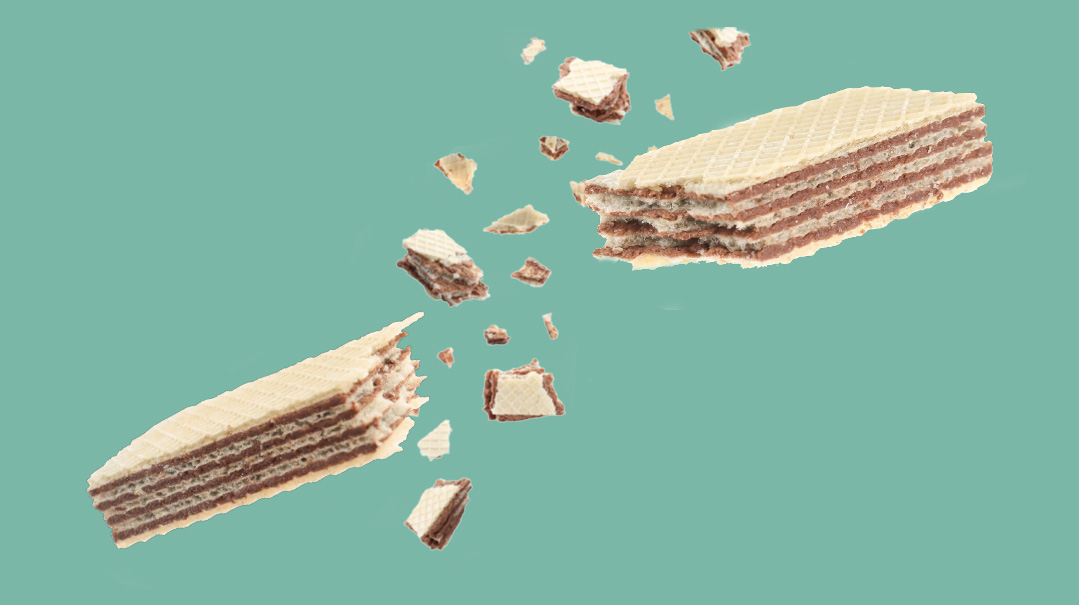Soul Surgery
| May 11, 2021“I’ve had enough of recovering! I can’t do this any longer! I’m going to make Shabbos!”

It’s cold. Too cold.
I blink in the harsh lighting and watch the staff bustle around me. There are more people than I’d expected, more staff than I’d ever imagined were needed in an operating theater for this ordinary, run-of-the-mill kind of surgery.
Nurses and doctors busy themselves around the narrow bed in the center of the room. For a moment, I feel like the star in some strange film, the center of attention in an overwhelming way. Then I think of my babies at home, and my breath catches. I close my eyes briefly. Hashem, let this go well, let me come home to my children, healthy and whole.
Sure, I know that statistically my chances are excellent and that this is hardly a frightening operation… but still. General anesthesia, abdominal surgery, several days in the hospital away from my family. I swallow hard.
A male nurse, fiddling with the IV that has just started dripping slowly into my vein, glances down. “Are you alright?” he asks, forehead creasing. The plump frum nurse at my other side pats my leg. “She’s nervous,” she murmurs. “Of course she is. It’s alright. You’ll be okay, sweetheart, we’re going to take care of you.”
Then a mask descends over my face. “Breathe in, nice and deep,” the nurse says kindly. Within a few moments, the ceiling starts spinning slowly, and then there is nothing.
My body is being moved and something is beeping incessantly. I try opening my eyes in groggy disorientation.
“It’s over, sweetheart, it’s done,” a voice says in my ear. I try to focus on the words and on my surroundings, but I slip back into blackness. A few minutes later — or maybe it’s longer — I wake up again to find my mother at my side.
“It’s over, Tali. You did great,” she murmurs. I manage a half smile before fading out again.
The first day passes in a blur of disoriented sleep. The second day I’m more alert, more awake, more aware of the bandages on my stomach and of each painful movement. By the third day, I’m home.
The ride home from the hospital is grueling; I have to breathe through the pain with each bump and pothole in the road.
“How do people do this after surgical births when they have a newborn to care for?” I gasp repeatedly. The short distance from the car to my apartment seems endless as I move in a slow shuffle toward the door.
“Mommy!” I’m back home with my children, with my precious family. My husband settles me on the couch, and my children clamber around me. I ward them off with my arms flung out: “Watch my tummy! Remember, the doctors cut Mommy open to make me better, and now my cuts need to heal! Please be gentle!”
Alas, gentle isn’t an easily comprehensible word to toddlers and preschoolers.
Before the surgery, I’d spoken to several women who’d been through the same operation. “Recovery is quick,” they’d assured me. No one bothered mentioning the six weeks I wouldn’t be allowed to lift. No one bothered telling me how slow “quick” is when every movement is painful, when you can’t cough or sneeze or laugh, or even shuffle to the bathroom, because it hurts so much. And no one bothered telling me that even quick recovery would mean days and weeks of being unable to do my job: to take care of my home and my family.
“Hudi, come here!” I call, waving a tissue frantically from my permanent placement on the living room couch. His nose is running, he needs a tissue, can someone just get him over here to me please so I can wipe his nose?!
“Shevi, your diaper…” I call helplessly, watching her toddle about with the diaper hanging down to her knees. “Can someone come change the baby? Please?”
The troops gather: “We’re hungry! We’re thirsty!”
I sit and look at them with big round eyes. They’re hungry and thirsty, and so am I, and I’m powerless to help any of us. I can’t even sneeze. (Really. Every time my body tries to sneeze, it stops before it starts.) I can’t even reach my phone, because then I would need to get up, and I just can’t do that right now.
When I do get up, I sort of shuffle. And moan.
“Mommy, take us to the park,” they kvetch. “I don’t have any socks in my drawer,” they whine. I sit. I sit on my new home on the couch, a beached whale in all its glory. I sit and watch the piles piling up: the piles of laundry, the piles of papers, the piles of board books, the piles of Magna-Tiles, the piles of tissues, the piles of towels, endless piles as far as the eye can see.
The piles pile higher and higher. I watch in morbid fascination, incapable of doing anything about it.
“How long is it going to take me to clean this house up?” I fret to my poor husband when he comes home and valiantly tries to straighten up. “Oh… and could I bother you to bring me a new water bottle? And don’t forget it’s bath night for the boys… and could you please pack Yoni’s bag for swimming tomorrow? And Shevi needs to be changed again…” my voice trails off. I hate this helplessness.
“That’s it!” I declare to my husband at the end of the first week. “I’ve had enough of recovering! I can’t do this any longer! I’m going to make Shabbos!” My husband looks at me sympathetically and brings me my siddur, a sefer Tehillim, and a glass of tea with some Advil. I glare.
“Why don’t you take this time to connect to Hashem?” he suggests, but my eyes close over the pages, and I awaken to the wails of my offspring. I try to change positions and promptly give up.
“I can’t do this resting thing!” I tell him the next day. “I can’t do this recovering thing. I need my life back. The busyness, the breathlessness, the accomplishments.”
It feels like an existential crisis. It is an existential crisis.
“Why don’t you use this forced time ‘off’ to grow, to get closer to Hashem?” my husband asks me again.
But I don’t. I sleep fitfully when I try to rest, and I spend my afternoons and evenings pushing myself too hard, trying to do too much, too fast. But one day turns into another and then another and… I start getting stronger. My incisions begin to heal. I start taking my children to the nearby playground again. I throw myself back into life, embrace the busyness, the breathlessness, the accomplishments, and I relish my strength.
Yet every so often, I hear whispers that rustle near the edge of my consciousness, somewhere in that twilight zone between awareness and whatever lies beneath it. And I wonder if perhaps I could have used that time more wisely.
I do it again. I push the voices away, far away, and rush, open-armed, back into my engaging and active life.
(Originally featured in Family First, Issue 742)
Oops! We could not locate your form.






